Delivering a hyper-personalized customer experience is essential for businesses looking to differentiate themselves in today’s fast-paced digital landscape. Oracle B2C Service Cloud, when integrated with Oracle Unity, creates a powerful ecosystem that enhances customer experience and drives engagement by offering the insights from Unity in its 25A release.
Oracle Unity: Powering Personalization with Intelligent Attributes
Oracle Unity, a customer data platform (CDP), unifies data from various sources to create a 360-degree view of each customer. With its Intelligent Attributes, businesses can analyze past behaviors, preferences, and real-time interactions to provide tailored service responses. For example, if a customer frequently engages with a brand via SMS and email, Oracle Service Cloud can use this insight to prioritize these channels for service responses, ensuring a rich customer experience.
What is the current state of Unity Integration?
The Unity Integration provides a configurator to provide the Unity credentials and activate the point-to-point integration. This is a one-way integration to share the service data to Unity. The data for the following objects will be share via a pre-defined mapping with Unity Objects.
- Incidents
- Contacts
- Organizations
- Products
- Categories
The custom objects of Service cloud can be share using a custom mapping file.
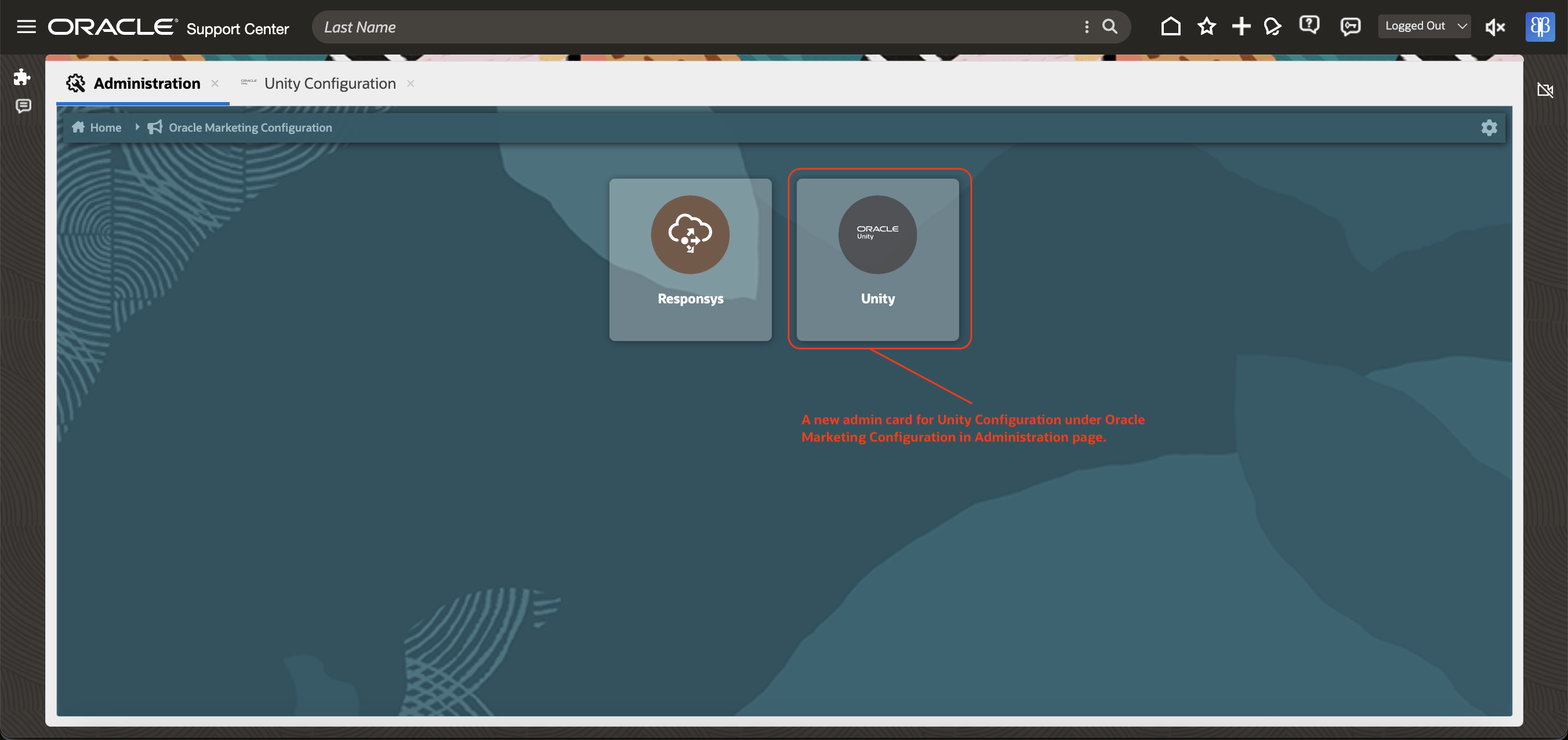
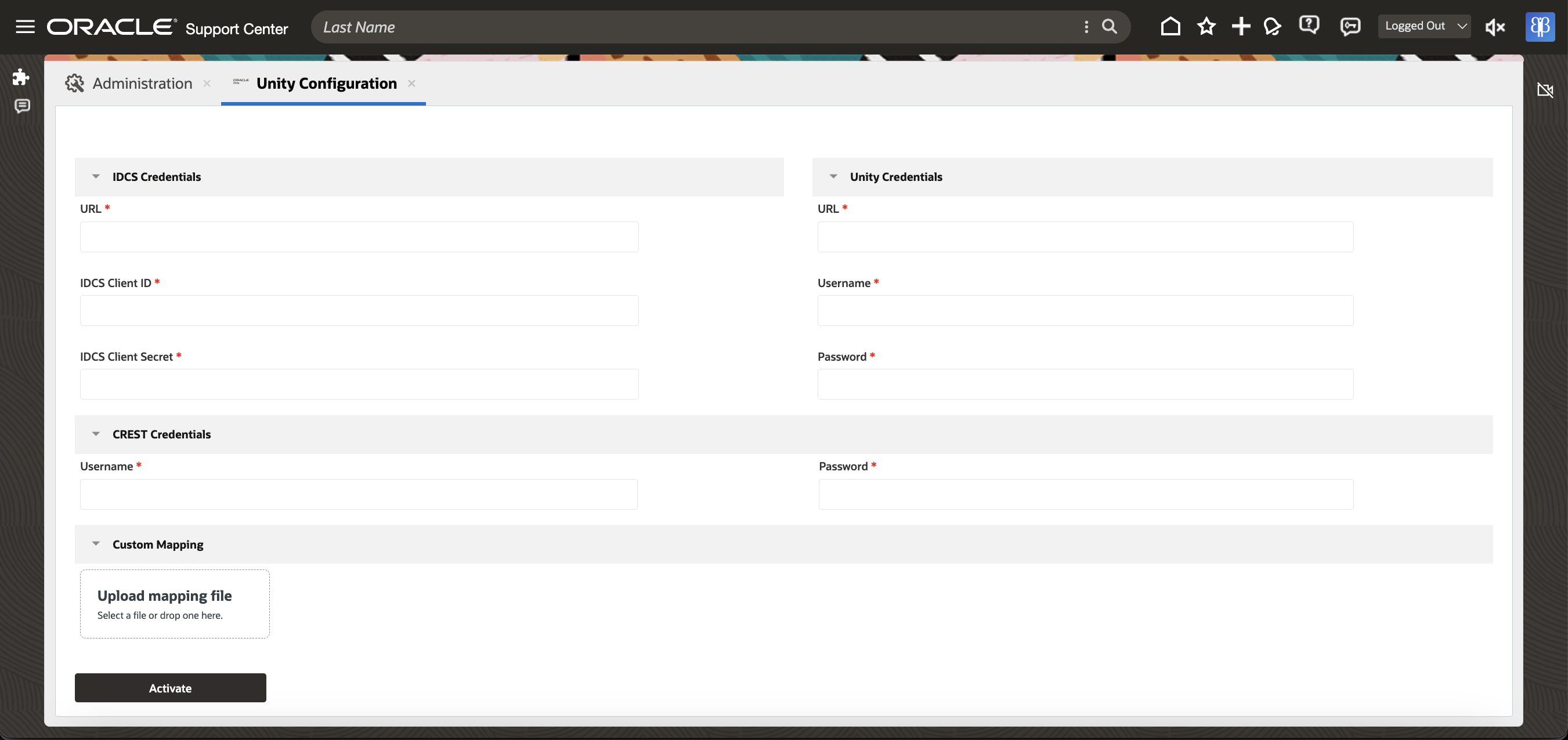
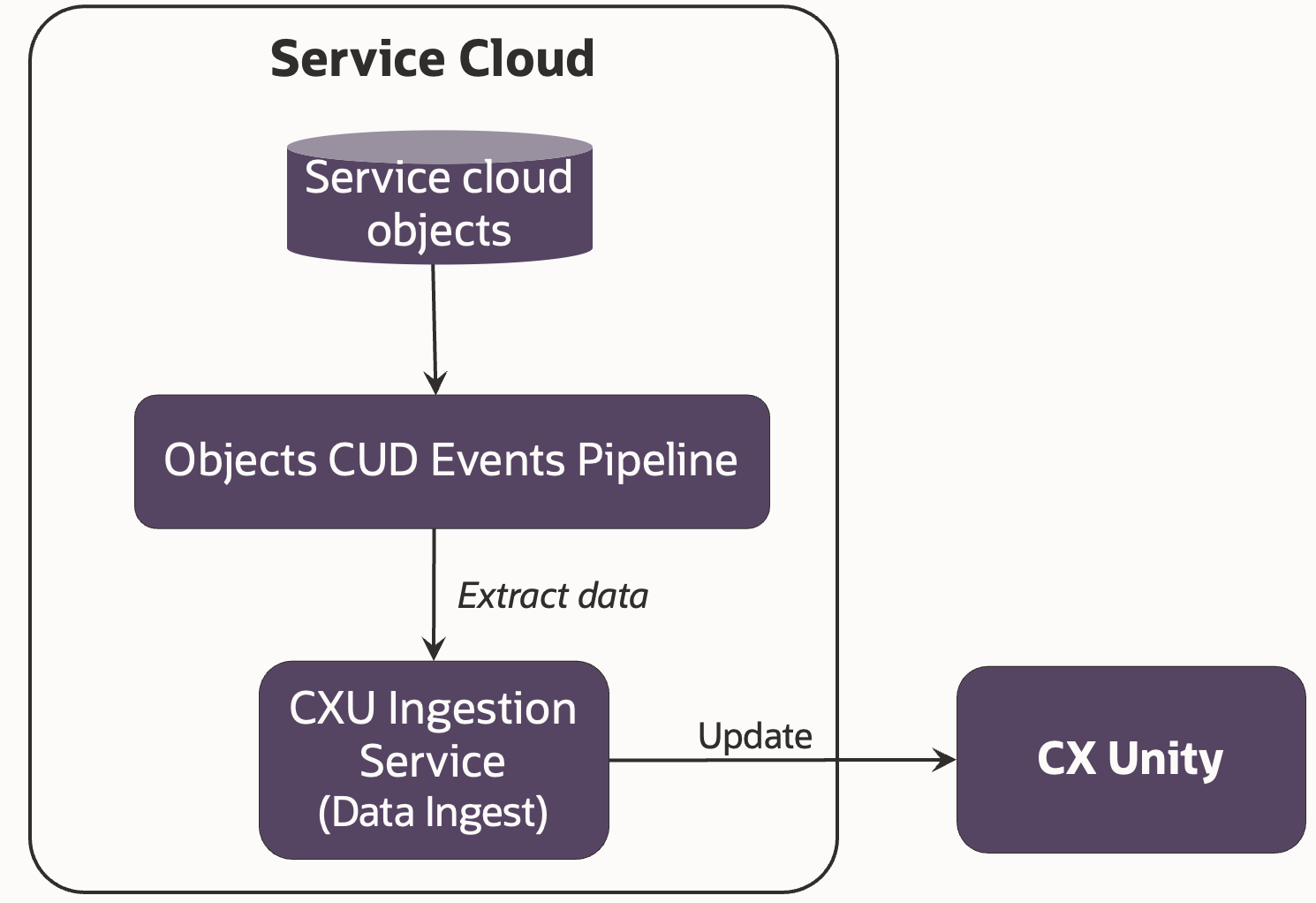
What are we releasing in 25A?
From 25A release, the Unity Integration will create Service oriented Intelligent Attributes in Unity when the integration is activated and fetch those intelligent attributes for consumption for Service Agents.
The Service oriented Intelligent Attributes are
- Average Sentiment Score: The average of the emotive rating of the end-user expressed in percentage. The source field from Incident is Contact Smart Sense (ei_cust).
- Product Affinity: The top product for which the contact has requested service. The source field from Incident is Product ID (prod_id).
- Preferred Channel: The top channel chosen by the contact to interact with Agents. The source field from Incident is Channel ID (chan_id).
- Average Service Duration: The average time taken to resolve the incidents. The resolution time is computed as the difference between Date Closed and Date Created. The source fields from Incident are Date Closed (closed) and Date Created (created).
These Intelligent Attributes will be available in the Master Customer entity of Unity and will be updated for each execution of the Identity Resolution jobs of Unity.
The Intelligent Attributes will be available in Oracle Service Cloud in Unity Insights Panel in Agent BUI for each Contact.
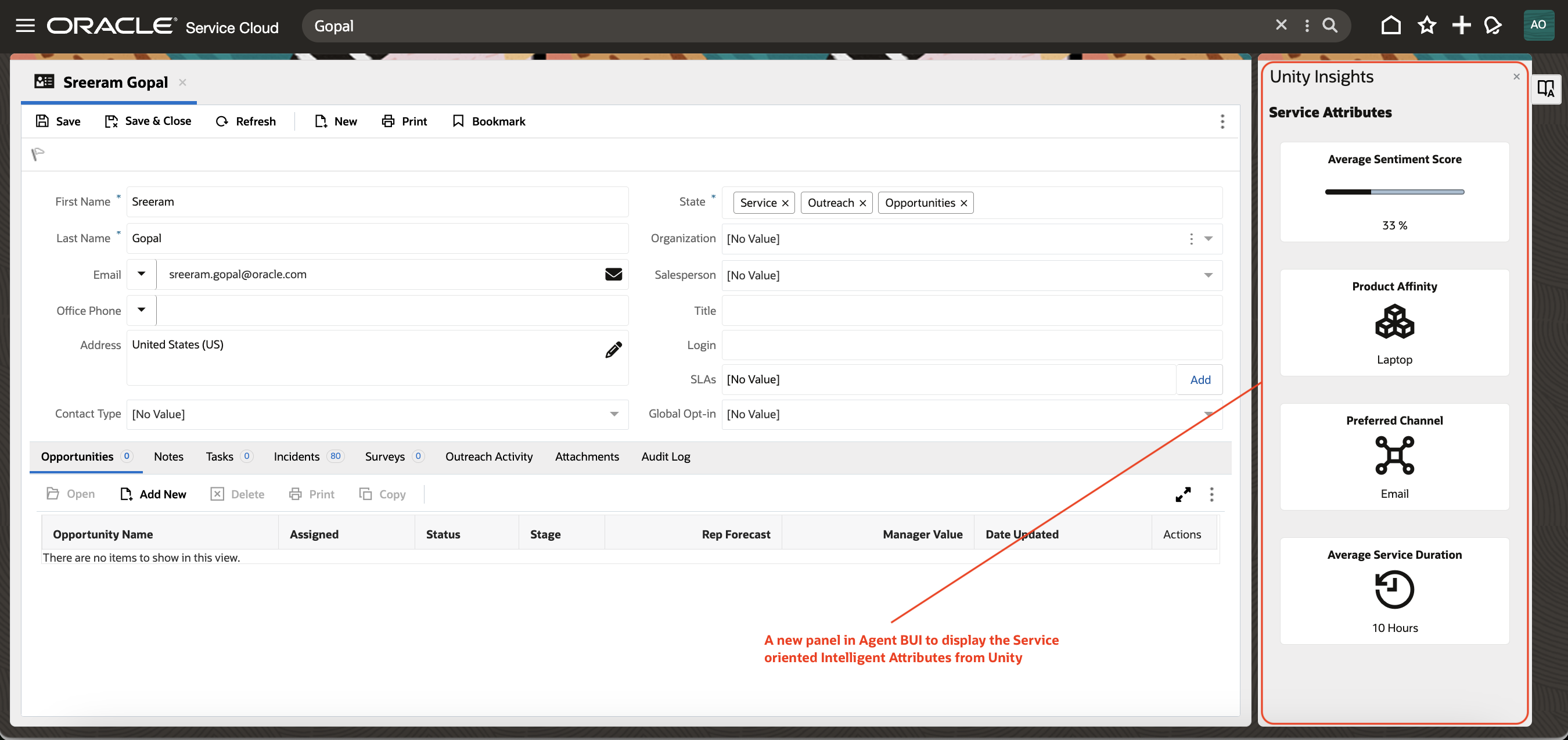
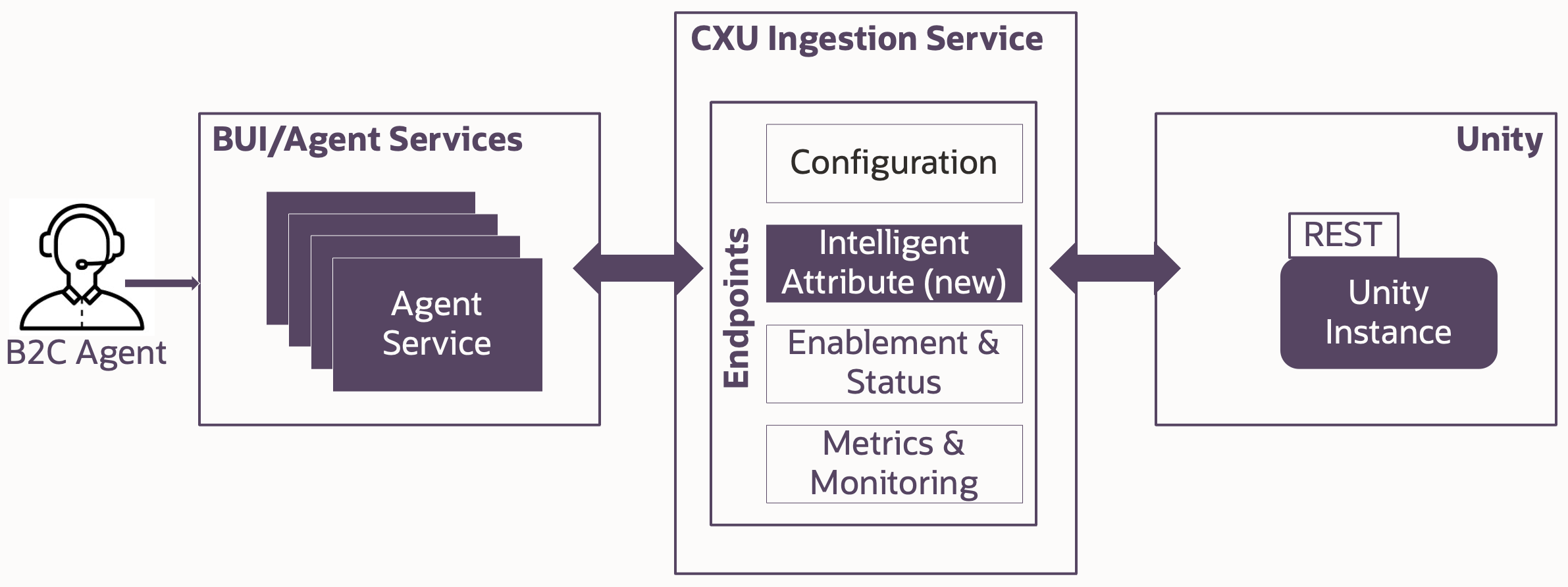
Business Value provided by Unity Integration
- Seamless Data Flow: The Unity Integration ensures seamless and real-time data flow between Oracle Service Cloud and Oracle Unity. This ensures the Intelligent Attributes in Unity are always latest.
- Proactive Engagement: With intelligent attributes displayed in Unity Insights panel in Agent BUI, the customer service agents have access to customer profile enabling the agents to reach out to contacts through their preferred channel, making interactions more personalized and efficient.
Future Enhancements of Unity Integration
- Unity Intelligent Attributes in Business Rules: Asynchronous rule execution to fetch Unity attributes and use it in business rules for automation.
- Chat Intelligent Attributes in Service Cloud: Creation of Chat Intelligent Attributes in Unity, fetching and displaying the attributes in Unity Insights panel in Service Cloud.
Documentation for reference
Unity Integration: https://documentation.custhelp.com/euf/assets/devdocs/buiadmin/topicrefs/c_overview-of-cx-unity-integration.html
Questions or feedback?
Please feel free to reach out to us for any questions or feedback via: senthil.prabhu.palaniswamy@oracle.com or you could reach our team via: ama_service_cloud_ww_grp@oracle.com
Keep watching this blog for next episodes of Unity Integration!


